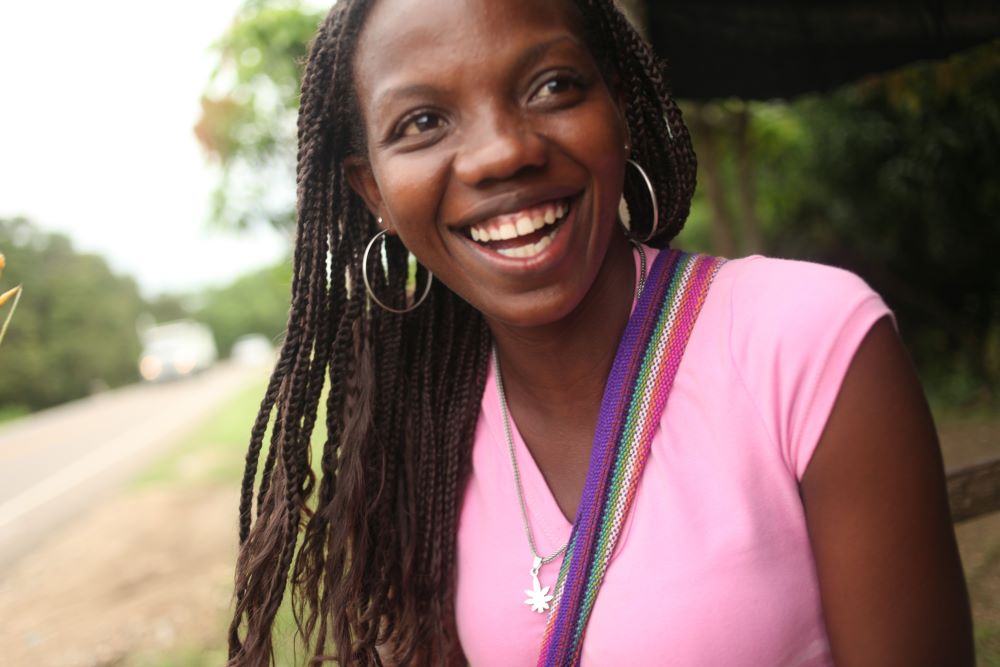By Hannah Dillon, Director of The Iris Project

Photo credit: Dana Romanoff Photography, LLC
It’s no secret that the philanthropy sector needs a shake-up. For too long, well-intentioned environmental initiatives have been designed in isolation from the communities they purport to serve, by people in the Global North who lack both the imagination and lived experience to create solutions that can deliver tangible change. Funding applications have been designed to meet the needs of donors, and evaluation matrices have made untenable reporting demands on communities. Young people have often failed to access funding because they lack “experience”, and philanthropic donations have not yet achieved the systems change necessary to resolve the climate and ecological crisis.
Global Greengrants Fund (GGF), refreshingly, have refused to fall into this trap, which is one of the main reasons we wanted to work with them as a host organisation when establishing The Iris Project—a global environmental initiative that provides grant funding, capacity-building and mentorship to young people around the world who are working to protect and restore nature where they live. It is also why—in designing a project aimed at supporting young people—we chose to put young people at the heart of it by creating a Youth Advisory Panel. After all, young people know young people best. What we didn’t realise was how much they would teach us along the way. (I should acknowledge at this point that I recognise young people are not a homogenous entity, but for the purpose of this blog please forgive the oversimplification).
Our first experience in working with young people—when establishing our Youth Advisory Panel—did wonders for building confidence in our approach, and in GGF as our chosen partner. After working with GGF’s Next Generation Climate Board, who ran an extremely efficient and effective recruitment campaign, we ended up with the incredible panelists we have today—7 youth advisors from 6 continents, boasting a wealth of experience across climate organising and project implementation. Critically, our new panel members believed in and understood our mission, and were excited to be a part of it. However, the fact that the majority of them were surprised when we told them that we planned to pay them for their advice, proved just how much work we had to do when it came to pushing for more funding for youth-led climate action.
The lessons we’ve learned from our advisors have been varied and impactful. One of the main ones was the importance of trust. Not just as a core value, but as a guiding principle for everything that we do. Our advisors don’t necessarily refer to this as “trust-centred giving”—which is a core focus of the work that GGF does—they are just clear that our grant winners should be able to choose how they want to spend their money, because that is the right thing to do. After all, you can’t say you want to support and lift up young people and then impose your values or process on the decisions that they make about the money you give them. There might be barriers to project implementation that we as funders can never understand, especially in more remote areas of the Global South. For example, there might be incredibly valid climate-related reasons for our prize applicants having a criminal record. And if the funds we provide go to paying for food, care, shelter or legal fees so that our prize winners have more time to spend on their projects, then so be it.
We have also learned that young people are incredibly innovative. They are sceptical about efforts to combat the climate crisis to date—of course they are—but they are not jaded. They haven’t spent the last 50 years mislearning how to do things. As a result, they are capable of coming up with truly refreshing ideas, and even more importantly, of making them happen. You don’t need to tell a young person that their projects have to suit the needs of their communities, because they already know. You don’t have to explain the need for collaboration, because it comes naturally to them. You don’t have to ask them to consider the broader impacts of the interventions that they make, because they already instinctively understand that any project that has anything to do with climate justice must take an intersectional approach.
Finally, we’ve learned that young people are incredibly well networked, although I suspect the concept of networking in the pre-COVID era would be laughable to them. Instead, they talk of community. They instinctively create networks because their shared passion, anger, and in many cases, desperation automatically pulls them into these spaces. They understand more about communicating than I ever will, having worked in communications for a decade, and are without a doubt one of the main reasons that we received applications from 42 different countries in our first year of The Iris Project.
What our advisors have helped us to create—from the prize application form to the mentoring program they have developed—may only be a drop in the philanthropic ocean, but we hope it can serve as a test case to help build donor confidence in supporting the work that young people are doing. If our advisors and the incredible projects that they are helping us to support don’t make the case for investing in young people, I don’t know what will.
***
The Iris Project recently announced the first ever winners of their Seed, Stem, and Iris Prizes in a virtual ceremony on September 6. Catch up on the awards ceremony and learn about the winners.
